Tesco’s outgoing CEO, who leaves on Wednesday, reflects on his time at the helm of the UK’s largest retailer, and on the challenges and opportunities that lie ahead for Tesco, and UK food and drink
It’s been just over six years and a lot has changed in that time, at Tesco, in grocery, in the world. What’s been your abiding memory?
So many. They’re all around people and particularly Covid, driving around the country visiting stores, seeing the challenge of shoppers panicking, and colleagues finding ways to deal with that, and to help local communities.
And what’s been your proudest moment in terms of the turnaround?
When I’ve seen people do things they didn’t think possible. I was super proud of the tampon tax, adult diapers, all the stuff on invisible disability, because I had absolutely nothing to do with it. People saw it and they did it, they didn’t ask for permission. If it’s the right thing to do for customers, people don’t have to ask permission any more.
At your results last September you said you had hit every target in your five-year plan from 2014. So is it a case of job done?
There’s loads still to do. In the last six months alone, you’ve seen Aldi Price Match, Clubcard, Urban Fulfilment Centres. We’ve created an online business double the size of Ocado. We haven’t stopped and there’s still a full locker of things to come.
At 220p Tesco’s share price is the same as when you joined. Are you disappointed or is the market being rational?
The share price in October 2014 when we announced those half-year results that we delayed was 168p. At that time the market cap was £13bn. Today at 220p it’s £22bn. So we’ve added £9bn of value even though the stock market is depressed.
Tesco’s a lot smaller today than when you arrived. How do you feel about the deals you’ve done?
Speaking candidly, the disposals were to correct the balance sheet but I am super happy with [the acquisition of] Booker. Two years on we have met or exceeded every single metric we set. On a multiple of only eight times earnings will probably make it one of the best mergers/acquisitions in the last decade in any sector.
You’ve done lots of things behind the scenes to change Tesco but you’ve also faced into public affairs in a very personal way. Why and how?
Six years ago, there was a moment of introspection about what we wanted to be as a business. We identified that it was about serving people better. But whole idea of ‘to serve’ was much bigger and broader as a thought than a transaction in a shop. What we talked about was, if customers knew what we know about a certain issue, what would they want us to do on their behalf. And when you think through that lens there are certain issues where Tesco has almost an obligation to be forthright in debate around policy. We didn’t want to lobby but we wanted to be an objective input into policy-making bodies, not lobbying for the outcome but being prepared to be a partner as the government considered policy decisions.
Do you think the industry gets the recognition it deserves? And have you had any success in changing that?
The thing that annoyed and upset me most was when the industrial strategy [as set out in 2017] had no mention of food anywhere – even though the industry employs the most people and contributes so much value. Why did we not think in the industrial strategy about how it is we would feed the nation given what was potentially going to happen? I was fortunate to be asked to co-chair with [GSK CEO] Emma Walmsley the [then] prime minister’s panel [the Consumer, Retail and Life Sciences Business Council, set up in 2019]. So we got a seat at the table to be able to talk about some of the issues in a way we couldn’t before. But if you think about the way we are set up as an industry, the BRC struggles to have a definitive point of view on policy.
“The thing that annoyed and upset me most was when the industrial strategy had no mention of food anywhere”
Similarly the FDF is dominated by snacks, fizzy drinks and other branded consumer goods. There’s no fresh food represented. There’s no retail represented. And the IGD is a fantastic organisation, where retailers and manufacturers do come together, and is probably the forum that has the most potential, in terms of the food industry, but because of the statute, it can’t lobby. And therefore who speaks for the food industry? The fact we’ve split it up in the way we have means the government can pick and choose how it wants to engage.
So you’ve fed your thoughts in to government departments. What do you think of Henry Dimbleby’s national food strategy report?
I applaud that someone is being tasked with doing it. I also understand why part one was positioned the way it was. But I consider it a missed opportunity to have a very strong impact in the first articulation of the food strategy. The bigger issues in the food strategy are much more holistic than just that link to obesity. It’s important, but there’s a lot more to be considered.
So what do you think a future national food strategy should look like?
You need a strategy for how you’re going to feed the nation because 50% of the food the country needs is imported. And all the trade and relations you have could potentially fall away. The opportunity I saw and the conversations we have had with government were around what is it you really want the population to eat, and how that sits with the resources you’ve got. There’s a once in a lifetime opportunity to think about this more holistically.
You’ve talked about the government introducing subsidies for fruit and veg. Isn’t that your job?
Food strategy needs to ask the question ‘What’s the consumption we want?’ We consume twice the animal base protein recommended in the Eatwell plate. And we underindex in fresh fruit & veg. As an industry we’ve made it a goal over many years to make animal protein more affordable. But we now have a situation where we eat twice the meat we should. And now we know the environmental impact is not very good [either]. Also, the UK imports quite a lot of the meat we need. So there’s an opportunity to put your trade policy together with an environmental policy and a health policy.
You’re calling for incentives for sustainable farming. How do you square the circle between greener agriculture and greater food security?
The technology on light and solar has developed so much it’s now an affordable option. The benefits around irrigation, and in terms of pesticides from things like vertical agriculture are phenomenal. The only thing that’s difficult is the capital upfront cost. The government have given capital grants to other industries to stimulate investment but nothing to agriculture. So my question to the government was why not think about how you support growth in domestic production of the food you most want from a health and environmental perspective in your own country?
You’ve said our government should make sure food sold in the UK is deforestation-free. Even the most conscientious suppliers struggle with this. Can the government really help?
Yeah. Honestly I think it’s something government and business should do together. If government sets trade policy it has the opportunity to set the rules on which that trade happens. The reason for calling for this, and putting it in the trade bill, is because we want government to raise standards not lower them. There’s a wonderful opportunity for government to say ‘actually this matters to us and therefore we want it in a trade deal’. Governments have a role to play in terms of food policy, trade deals and so forth. Business has a role in terms of setting standards. And if the two work together we can have a big impact.
You talk about raising standards. Are you worried by the government’s Brexit negotiations?
Honestly none of us know. The conclusion of all the work we did early on about a no-deal was that the impact depended almost completely on the outcome of the trade negotiations. If there were to be a double tariff I would be concerned. But do I think there will be? I just don’t know.
You have called to make reporting on food waste data mandatory. Why do you think the industry has not followed through on voluntary commitments?
The industry is following through. But leading on some of these issues is painful. Tesco did it first. The first three years of publishing we got a massive amount of negative coverage. So I think they worry that by publishing their figures, commentators will be critical and won’t understand the challenges. But the industry needs to be more ambitious.
Last week Iceland published its plastic figures and threw down the gauntlet to others to follow suit. What was your reaction?
I saw Richard [Walker’s] comments. We’ve already done that. Eighteen months ago we set out a radical strategy around packaging to all our suppliers in terms of the four asks. It was quite controversial at the time. We published all of that information with our Little Helps plan.
How are you performing against the plan?
We had a plan this year to remove one billion pieces of plastic from our business. By March we had done 880 million pieces. We were absolutely motoring. But when Covid happened behaviour changed. So there’s been a pause. We’ll probably do 750 million pieces by the end of this year but there’s more we could do and will do.
Marcus Rashford has highlighted food poverty as an issue in our society and some of your rivals have been making big new commitments. What has Tesco done?
We’ve done a lot. We’ve been on the case for the last two and a half years. We’ve given more than 100 million pieces of fruit away to kids. And Tesco has been the only retailer, the only retailer, at scale, to [help] customers eat a healthier basket, putting side by side alternatives, to try and move people to switch to healthier options and taking promo money from our supply partners and putting it into healthy alternatives, so that being healthy doesn’t mean it’s more expensive. No-one else in the industry has done it because you have to face into some really difficult things when you look at your promotional calendar through that lens.
So what is the thinking on the change in promotions strategy? Is it about value? Or obesity? Why can’t it be both?
There’s an opportunity to reflect on where investment is made. If you look at the obesity strategy, should the industry be driving that consumption effect? One of the reasons we challenged promotions way back was over the value add.
“If ever there’s a year to get off that promotional drug it’s this year”
The inefficiency of high-low is massive. Simplify and everyone gets a better deal. And so, post the Covid shortages, when everybody has volume again, do you want to go back to volume-led promotions, or do you take the opportunity to normalise volume and go every day low price in those categories? That’s what we chose to do. Everyone’s had more volume as suppliers than they ever thought so if ever there’s a year to get off that promotional drug it’s this year. It’s easy to say, harder to do. But maybe we should reflect on where it is we put our promotional dollars.
There’s a report out this week showing that, despite progress and pay bonuses during Covid, supermarket workers are still among the lowest paid in the sector. How do you feel?
One of my reflections in the pandemic, as a citizen first and foremost, is that the key workers in the NHS, the careworkers and the food industry, are also among the lowest paid. Our whole industry has done a fantastic job of lowering the cost of food. But everywhere, including for our colleagues, there has been a downward pressure. The question for the whole industry is: is there a model going forward that thinks slightly differently. Over the past five years pay has gone up 26% in Tesco, which is not bad. I wish it had been more. I hope that is afforded as we go forward.
All the best leaders know when is the right time to leave? In what sense is this the right time for you and for Tesco?
You’ve got to have the courage to keep reinventing yourself. You inherit a particular situation, you bust a gut to do the best you can, and knowing when it’s the right time to pass it on to someone else that will do it better than you, that’s the mark of leadership. But it’s difficult to leave. It’s much more difficult than I thought it was going to be.
Finally what’s next?
The two things I know I’m going to do are: the WWF job which I took on in June; and I’m joining the Leverhulme Trust. Commercially I honestly don’t know. If I do another big commercial job it will be the last one. So I want to pick it deliberately and well if I can. I will probably take a non-exec job to keep my hand in and see what’s happening. But I’m going to take some time to recharge and reflect and then decide.







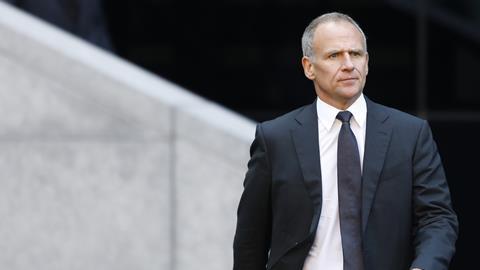
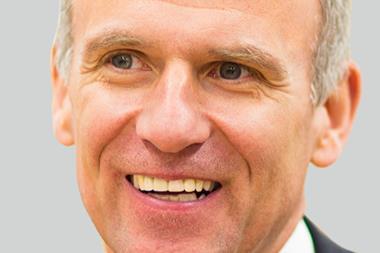
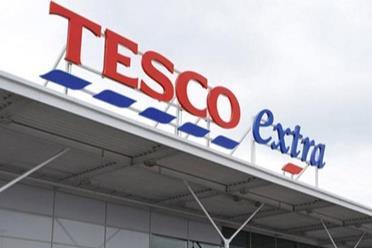



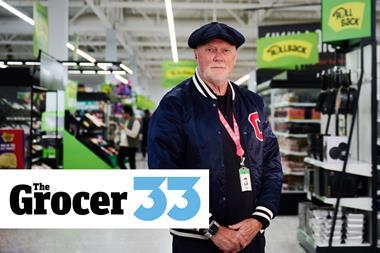
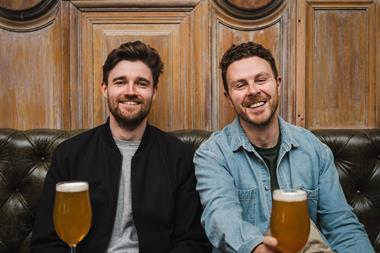
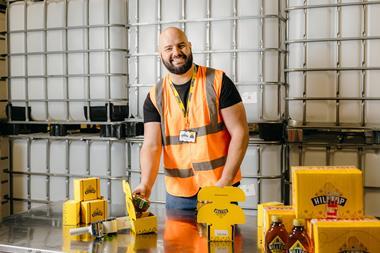
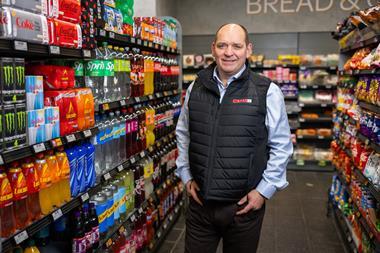
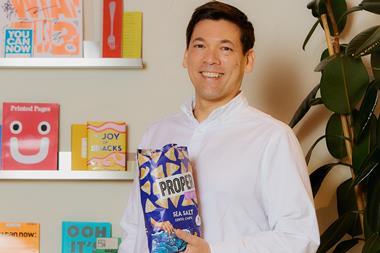
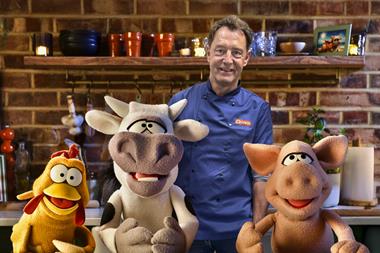
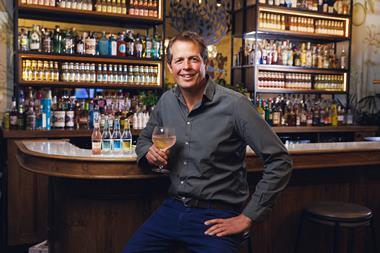
No comments yet